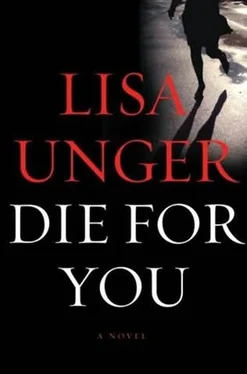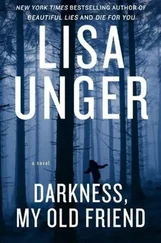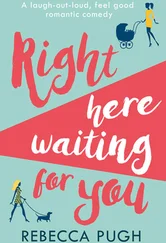A quick glance showed that she was still behind me. She was trying to hang back, still hiding behind that newspaper. I managed to lose her by squeezing onto a crowded uptown train. I took it one stop to Astor Place and then took the next train back downtown. I walked to Camilla Novak’s building on West Broadway and Broome Street. I’d always loved SoHo, something so grand and yet terminally hip about it, somehow swank and grunge at the same time-the galleries and upscale shops with huge picture windows representing outrageous rents, narrow residential buildings, tony cafés, only the very coolest bars and restaurants. Once known as the Cast Iron District, SoHo boasted huge historic buildings with gigantic windows and upper floors that were wide-open loft spaces, appealing to artists because of the square footage, natural light, and cheap rents. They moved into the spaces illegally in the 1970s, ignoring the city zoning at the time, but the depressed city was too embroiled in its other messes-rampant crime, a shattered economy-to care.
Most people didn’t realize that more than 250 buildings were made with cast iron. Architects found cast iron to be cheap, could be fashioned into the most intricate design patterns, and was easily repaired. It was also the strength and pliability of this metal that allowed for the carving of magnificent frames and the tall windows so beloved by artists. Unfortunately, when exposed to heat, cast iron buckled. Steel brought a rapid end to the use of cast iron. I know all of this because of Jack, the original New York City geek.
When I came to the address I’d written down, I rang the buzzer hard, a few times. Novak, 4A was scrawled on her mailbox; otherwise, I wouldn’t have known what buzzer to push. I realized that this was the reason they (the ubiquitous they with all their cautionary tales) told you not to put your last name beside the buzzer at the street door.
But there wasn’t any answer. I didn’t have any reason to believe that she’d been here when I talked to her; I might have reached her on her cell phone. And if she had been here, maybe she’d left afraid that I’d do exactly what I’d done, look her up on the Web and show up at her door. She’d wanted to talk to me once. Why had she changed her mind?
I rang the buzzer again. When there was still no answer, I started ringing other buzzers in the building, hoping someone would just let me in. I had no clear idea what I would do if I had gained admittance. I was just operating on a kind of autopilot, moving forward on instinct with little planning and no visibility beyond the present tense.
I was about to give up when a voice carried over the intercom.
“Who is it?”
“It’s Camilla,” I lied. “I forgot my keys.”
“Again?” crackled an elderly voice. “I’m not letting you in next time.”
I heard the door unlock and I pushed my way into the foyer. Black and white tile beneath my feet, cool concrete walls, milky light washing in from a window on the first landing. Now what, genius? I thought, pushing through the second door.
I peered up the staircase. I could hear the sound of a cat mewing, the frenzy of a game show on someone’s television. Somewhere in the building a baby was crying. As I started up the stairs, I patted my bag for my cell phone, on reflex wanting to call my sister. But it was gone, I remembered. I’d left it behind. I felt suddenly as if I was alone in the dark without a flashlight. In the woods, feeling my way.
On the fourth floor, I paused, then walked slowly in the grainy light filtering in from a frosted, double-paned window at the end of the hallway. 4A was the first door on the right. I looked at it; someone had painted it recently, a glossy black compared to the dull gray of the others on the floor. What would I do? Knock? Listen at the door? I almost turned around and left, almost took Erik’s advice and headed uptown to the lawyer’s office. Instead I put my hand on the knob and, against all better judgment, turned it and found the door unlocked. This, I knew, was not a good thing.
The rules dictated a hasty retreat, a return to the fold. Like my nephew, I could suddenly see five moves ahead and know that I was out of my depth. And yet I kept moving, pushing the door, heading inside the apartment like a lemming to the precipice.
Inside, the lighting was dim, all the shades drawn. I heard the ringing of a cellular phone, light and musical. It stopped. Then, a second later, it started ringing again. I stayed rooted in the door frame, my hand still on the knob. Finally, I stepped through onto the hardwood floor.
“Hello?” I said. “Camilla?”
The phone had stopped ringing, and muffled street noise was the only sound I heard. The apartment was tidy, with simple inexpensive furnishing-a matching beige overstuffed couch and chair, a low coffee table, an older television on a stand by the window. A large Oriental rug on the floor, some cheaply framed posters, a gray throw blanket over a footstool. The phone started ringing again. I could see it came from a handbag, which lay on the couch next to a coat.
I moved toward the sound. That’s when I saw her lying on the floor, legs folded demurely to one side, blood spilling an angry red on the floor, on her clothes, sprayed on the white wall. Her impossibly white throat bore a deep gash so dark, so hideous, it almost seemed fake. She was dressed in white jeans, a tight white blouse, now marred with gore.
There was a thick thud within my center, a tingling at the wound in my head that spread across the top of my skull and traveled down my spine. I tried to take in the details of the scene, to process what was before me. But the whole room was shifting and tilting. I was only aware of a terrible nausea, a desire to get away. Then I saw movement out of the corner of my eye.
“Isabel. Don’t turn around.”
But of course I did. And there he was. My lover, my friend, the stranger with whom I’d shared my life. I found myself reaching for him but he backed away. The lines that connected us, that would have drawn us together the day before, were sundered. He was on the water and I was onshore. He had drifted, not far but too far to reach. He was in view but gone for good.
“Why are you doing this?” I asked him. I glanced down and saw the gun in his hand. There was blood on his hands, on his shirt.
Even these things failed to shock me into fear. I could have-should have-been screaming, begging, weeping. But instead I found myself floating above it all, observing… the body on the floor, my husband’s hands wet with blood. He was so familiar, the surface so well known. But his depths were pure mystery, uncharted, now undiscoverable. All I could think to say was, “Why have you done this?”
When the words were in the air, my middle clenched with nausea. I looked down at Camilla Novak, her stillness, and saw the finality of it all. A door had closed. None of us would ever walk though it again. Our life, my life, was gone. Still, there was no rage rushing to the surface, no tears, no urge to yell. The girl on the floor was dead. But I was undead, moving around stiff and unnatural, my soul sucked from me.
“There’s no answer for that,” he said quietly. “Not one you’ll understand.”
His voice sounded different, gravelly and cold, seemed to echo from those unknowable depths. I didn’t know anything about my husband, if asked, couldn’t extrapolate on one certain detail to understand all the evil he had done.
I don’t know how long we stood like that, two strangers who recognized each other from another life. When he started to move toward the door, I made to follow. But he lifted the gun and I froze. I looked at his face, a cool and distant star. He’d use that gun, without hesitation. He’d kill me where I stood and walk away. The knowledge cut too deep for pain.
Читать дальше












